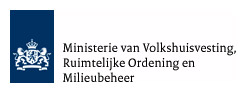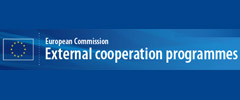Central Asian republic of Kyrgyzstan geared towards improving basic hygiene and sanitation
For the first time in Central Asia, the International Conference “Ecological Safety in the International Year of Sanitation” had ministers, parliamentarians, village teachers, and university professors speak about the down to earth issue of safe management of human faeces and urine.
13.11.2008 |WECF Press Release

For the first time in Central Asia, the International Conference “Ecological Safety in the International Year of Sanitation” had ministers, parliamentarians, village teachers, and university professors speak about the down to earth issue of safe management of human faeces and urine.
Bishkek/Utrecht, November 13, 2008 - “I am used to speak about renewable energy, but this is the first time I have been asked to speak at a conference on sanitation and toilets, and I must confess, it is not an easy topic to discuss, however, Germany has contributed financially, as we see that the lack of safe sanitation is a real problem in Central Asia”, said Holger Green, Ambassador of Germany in Kyrgyzstan.
“We are concerned that sanitary conditions have been deteriorating, especially in rural areas; there are hardly any schools that have clean toilets or hand washing facilities in this country, and as sanitation is not seen as “bankable”, funds by development banks are almost not available and the budget of the Ministry of Education is almost empty”, says Sascha Gabizon, Executive Director of the Dutch NGO Women in Europe for a Common Future, one of the main organisers of the conference.

“It was the first time in Kyrgyzstan that a two day conference was focussed on both policy solutions and on innovative technical solutions to improve the water and health situation”, says Carola Bjorklund, senior diplomat of the Ministry of Foreign Affairs of Norway, “and it is a strong signal to the governments, that the conference resolution calls for the Central Asian countries to ratify the international protocol on water and health”. “We have a number of donor projects providing piped water supply to villages, but if sanitation is not addressed at the same time, we find that often waste water and toilet waste end up in puddles in the streets or gardens, or are lead into a nearby stream, a hygienic risk for the local population”, said Mrs Sharshenova of the ministry of health of Kyrgyzstan.
“Human faeces contain many bacteria, and my research in the Aral Sea region shows increased incidence of diarrhea and dysentery among children under the age of 2, which can amongst others be linked to children being exposed to raw faeces in the yards” says Dr. Susanne Herbst of the University of Bonn, “it is essential that any sanitation system safely manages human excreta”.
“Unfortunately international donors are still promoting pit latrines” says Claudia Wendland of WECF, “but most families can not pay for the pits being safely emptied. Instead, we have demonstrated that sustainable sanitation toilet systems are available which not only allow safe treatment of faeces, but also safe reuse of urine as a fertiliser, and, a great plus, sustainable sanitation toilets can be used indoors and still do not need water for flushing”.
The 200 participants of the conference were invited to visit 3 demonstration projects showing how wastewater from kitchens and bathrooms was efficiently cleaned using a “soil filter”, a sealed pond in which sand and plants clean the wastewater to a quality of bathing water, The participants also visited 2 different types of dry urine diverting toilets. The cost of the toilets vary between 200 and 450 Euro, including a wash facility and light, this is much cheaper than having to build a flush-toilet and connecting to a sewage system, which in most villages does not exist in any case. The cost of the soil filter for 5 people amounts to about 950 euro, also less expensive than connecting to a sewage system.
Dr. Sabyrjan Abdikarimov, deputy minister of Health of Kyryzstan, concluded that the conference had raised an issue of essential importance for the health of Central Asian’s population, and that his ministry will be engaged with all stakeholders, nationally as well as in the regions, to work for preventive health protection through better sanitation facilities and education.
The conference received support from the German Ministry of Environment, the Netherlands Ministry of Foreign Affairs and the Water Supply and Sanitation Collaborative Council.
For more information, please contact:
Sascha Gabizon, International Director, WECF, + 49-1728637586
Chantal van den Bossche, Press Officer WECF, +31-6 2812 9992, chantal.vandenbossche(at)wecf.eu Women in Europe, +31 30 2310300,
The announcement for the Bishkek Conference
Related News
Reinforcing capacity building on waste water treatment in An Oston
During a five days' workshop, the engineers Stefan Deegener and Tobias Ulbrich, have brought the expertise and experience to the villagers and decision makers of An Oston
14.05.2018
SDG6: Leave no-one behind
Stakeholder consultation on water and sanitation in Bokonbaev, Kyrgyzstan
29.11.2017
Onsite wastewater treatment: hands-on-workshop in An Oston, Kyrgyzstan
A hands-on-workshop on wastewater treatment was organised in An Oston to give villagers the capacities to manage their waste water.
25.09.2017
Women2030: Women’s leadership in the Agenda 2030
Central Asian Workshop, February 26 – 27, 2017, Bishkek, Kyrgyzstan
28.02.2017
Empower Kyrgyz women in using green technologies – Support the ecological transition!
Active Kyrgyz women are building a sustainable and eco-friendly resource centre as little actions can make great things happening. Take part in these changes!
15.12.2016



































